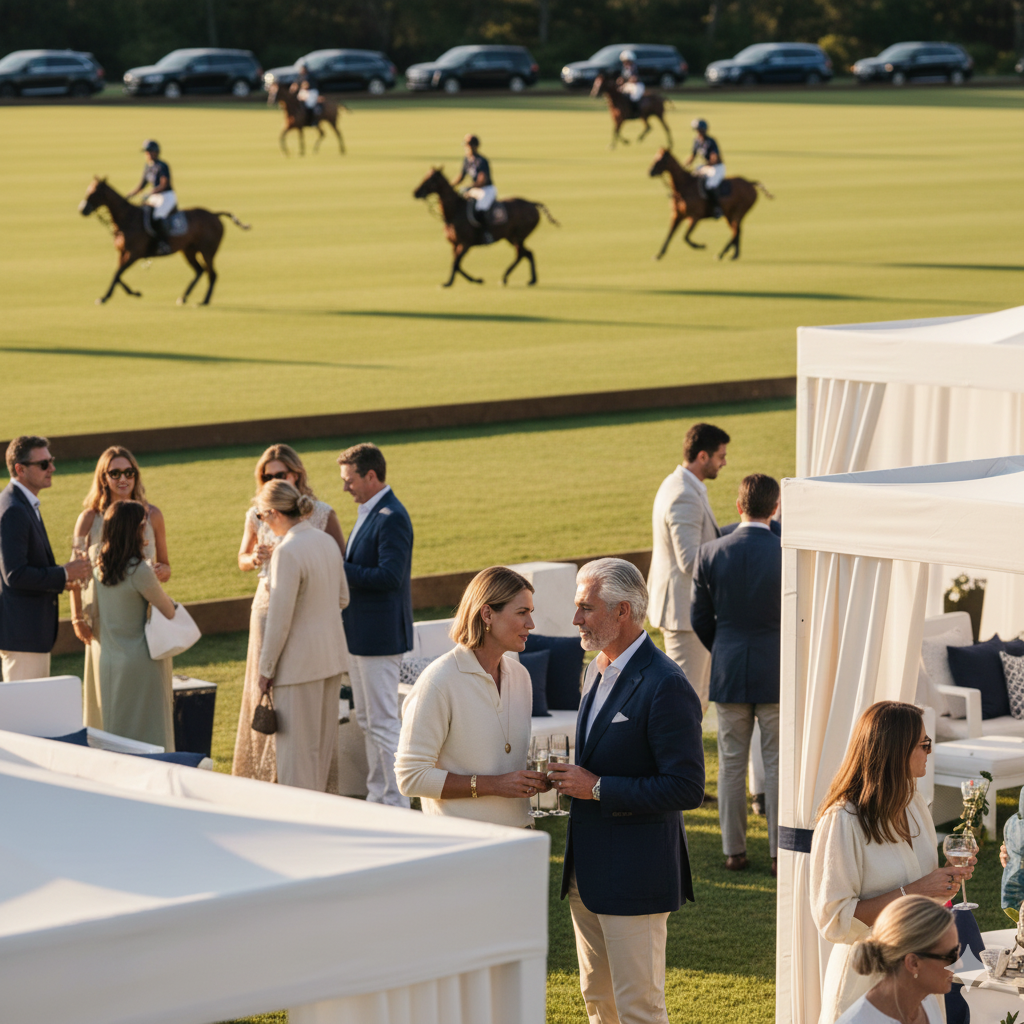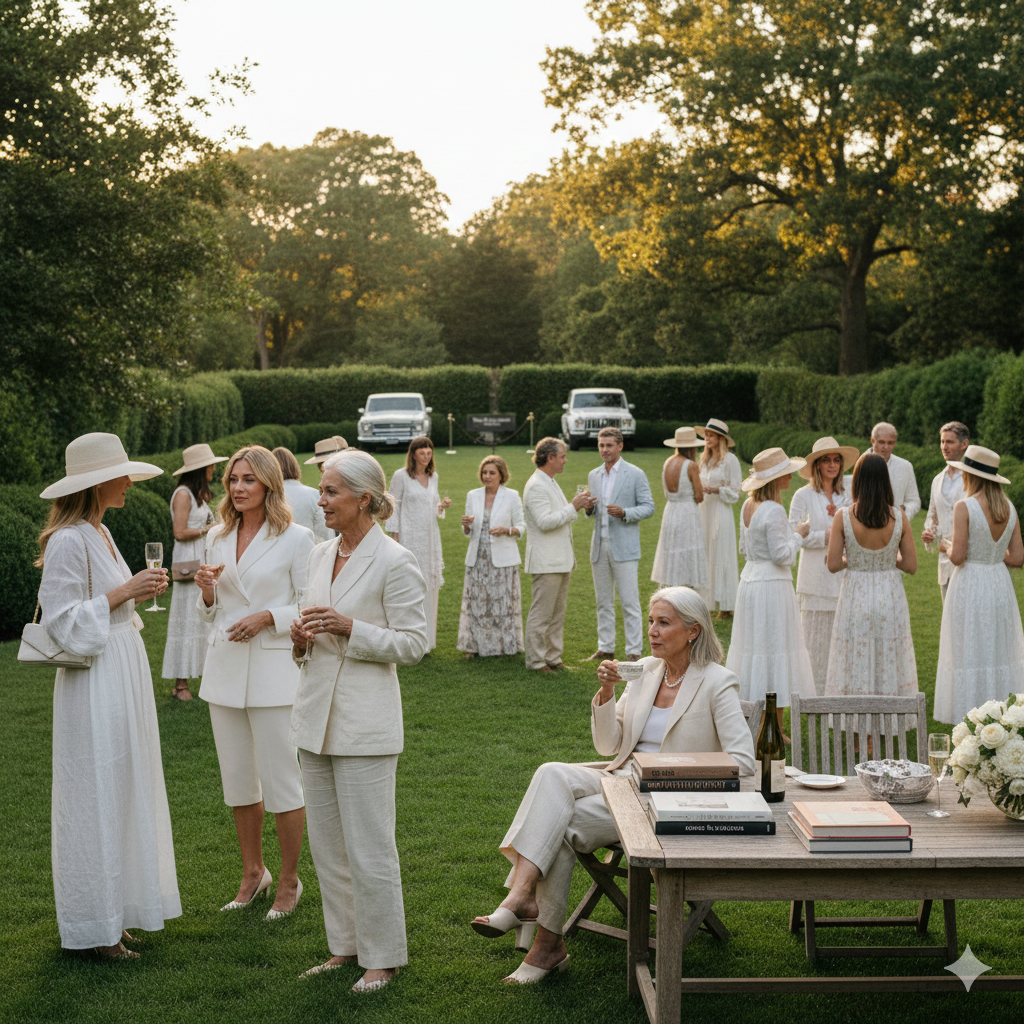Fifty million luxury consumers have abandoned the market in the past two years. However, the truly wealthy aren’t leaving—they’re simply changing the game. Welcome to the hidden doxa that governs Hamptons luxury culture, where the real status signals are invisible to everyone except those who already know the rules.
French sociologist Pierre Bourdieu coined the term “doxa” to describe unacknowledged beliefs so deeply held they’re accepted as fact without ever being articulated. In the Hamptons, this invisible rulebook determines who belongs and who’s merely visiting. Understanding the hidden doxa that governs Hamptons luxury culture isn’t optional for anyone seeking genuine entry into East End society.
What Is Doxa and Why Does It Matter in the Hamptons?
Doxa operates at a subconscious level. It shapes perceptions and judgments without conscious awareness. According to political theology scholars, doxa refers to deeply held beliefs taken as given—never questioned, rarely articulated.
In practical terms, doxa sets our “sense of limits.” It determines what feels natural versus what feels forced. The Hamptons operates as what Bourdieu called a “field”—a social arena with its own specific rules and stakes.
The Unspoken Rules Everyone Follows
Consider the subtle hierarchies at a Polo Hamptons event. Sponsors occupy the top tier. Invited guests from finance and real estate fill the second level. Ticket purchasers complete the pyramid. Everyone intuitively understands this structure. Nobody discusses it openly.
Why Outsiders Miss the Signals
The hidden doxa that governs Hamptons luxury culture punishes obvious displays. A Rolex Submariner screams new money. A Patek Philippe Calatrava whispers generational wealth. Both cost similar amounts. Only one grants authentic social access.
This distinction extends far beyond watches. The wrong handbag at the right party creates instant categorization. Arriving in the wrong vehicle compounds the error. Even conversation topics carry invisible weight—discussing your latest acquisition marks you as an outsider.
The Death of Conspicuous Consumption
Thorstein Veblen’s 1899 classic introduced “conspicuous consumption” to describe how the wealthy signaled status through visible extravagance. That playbook is dead. The Bain & Company 2024 Luxury Report confirms a fundamental shift: experiences now outpace goods in luxury spending.
Global luxury spending reached €1.48 trillion in 2024. Yet personal luxury goods declined 2% while experiences grew 5%. High-net-worth individuals increasingly favor travel, social events, and wellness over traditional consumption.
The Rise of Inconspicuous Consumption
USC Professor Elizabeth Currid-Halkett identified “inconspicuous consumption” as the new elite behavior. The aspirational class now spends on education, healthcare, childcare, and human capital. These investments remain invisible to outsiders while signaling status to insiders.
Her research reveals a striking pattern. Upper-income groups spend less on material goods and more on services that can’t be photographed. The luxury isn’t the item—it’s the knowledge of where to spend.
Quiet Luxury as Status Code
The quiet luxury movement exemplifies this shift. Brands like The Row, Brunello Cucinelli, and Loro Piana dominate Hamptons wardrobes. Their focus on impeccable craftsmanship over visible logos speaks volumes through subtlety.
This aesthetic communicates taste and status without shouting. The materials matter more than the label. Cashmere quality reveals itself to those who touch it. Fine tailoring announces itself through fit alone. These details separate genuine affluence from performance.
Cultural Capital: The Currency That Matters
Money alone can’t purchase entry into authentic Hamptons society. Bourdieu’s concept of “cultural capital” explains why. This currency includes knowledge, skills, and cultural assets that take years to acquire.
According to On Being Project research, inconspicuous consumption secures and preserves social status even when it doesn’t display it. The Harvard student saying they “went to school in Boston” demonstrates this perfectly—signaling to elites while avoiding mass recognition.
The Knowledge Barrier
Knowing to order the Dover sole at Nick & Toni’s matters. Knowing not to mention your net worth matters more. The hidden doxa that governs Hamptons luxury culture rewards those who demonstrate belonging through accumulated knowledge.
This knowledge extends to timing. Understanding which weekends carry social significance creates opportunity. Memorial Day through Labor Day marks the official season. However, insiders know that early June and late August deliver the most authentic experiences without peak-season crowds.
Generational Advantages
Legacy families maintain advantages through institutional memory. They understand which charity galas carry real social weight. They know which beach clubs actually matter. This information doesn’t appear in any guidebook.
These families also benefit from established relationships with local institutions. Their children attended the same camps. Their parents supported the same causes. This multi-generational presence creates social capital that money alone cannot replicate quickly.
How Elite Events Encode Social Hierarchies
Every Hamptons gathering creates invisible hierarchies that insiders navigate effortlessly. Research from Evolution and Human Behavior confirms that luxury consumption functions as costly signaling—displays that elicit status-dependent favorable treatment.
The mechanics are precise. Sponsors at polo events didn’t write checks for exposure. They bought access to decision-makers who influence purchasing patterns across industries.
Reading the Room at Polo Hamptons

Position matters more than conversation. Standing near sponsor displays during quiet moments creates organic opportunities. The Polo Hamptons experience reveals how luxury brands embed themselves in the sport’s cultural weight—signaling wealth, taste, and exclusivity simultaneously.
The Seven-Second Assessment
Malcolm Gladwell’s “thin-slice” phenomenon applies ruthlessly in the Hamptons. You have exactly seven seconds to make an impression that lasts years. Your outfit signals whether you belong or you’re pretending.
The New Markers of Authentic Belonging
The Bain-Altagamma research reveals that luxury experiences continue gaining traction as consumers shift toward travel and social events over tangible goods. This trend reshapes what “belonging” means in the Hamptons.
Authentic markers now include access to private clubs, invitations to exclusive dinners, and knowledge of upcoming cultural events before public announcement.
The Importance of Place Knowledge
Understanding the nuances between Hamptons villages signals insider status. Knowing that Hampton Bays offers authentic working-class roots alongside sophisticated amenities reveals genuine familiarity with the region.
Each village carries distinct social codes. East Hampton attracts old money and media executives. Southampton draws finance professionals and established families. Montauk appeals to creative types seeking authenticity. Bridgehampton bridges these worlds through its polo heritage. Understanding these distinctions demonstrates genuine investment in the community.
Service Staff Relationships
How you treat service staff matters enormously. Long-term relationships with restaurant managers, club attendants, and estate caretakers demonstrate sustained presence. Seasonal visitors never develop these connections.
These relationships also provide practical benefits. Preferred reservations materialize effortlessly. Information about upcoming events arrives early. The community maintains a collective memory that rewards consistent, respectful engagement over time.
Cracking the Code: Strategic Approaches
Understanding the hidden doxa that governs Hamptons luxury culture creates opportunity for strategic navigation. The key lies in patience, observation, and authentic engagement.
According to Harvard Program on Negotiation research, status cues affect thinking without conscious knowledge. Dressing down can actually signal higher status in certain contexts—the professor in red sneakers who commands more respect than conventional attire would allow.
The Long Game Advantage
Luxury networking operates as a long-term referral process. Visibility creates credibility that ultimately drives profitability. One season of authentic engagement outweighs ten seasons of forced networking.
Shared Experience as Entry Point
Everyone at elite Hamptons gatherings shares three things: they can afford attendance, they value exclusivity, and they understand unspoken rules. This common ground eliminates usual networking friction.
The hidden doxa that governs Hamptons luxury culture ultimately rewards those who invest time in genuine understanding. The rules may be invisible, but their effects are anything but.
Connect With Hamptons Luxury Culture
- Feature Article Ideas, Advertising & Brand Partnership Inquiries: Contact Social Life Magazine
- Polo Hamptons Tickets, Cabanas & Brand Sponsorships: Explore Polo Hamptons
- Join Our Email List: Subscribe for Exclusive Updates
- Social Life Magazine Print Subscription: Subscribe Now
- Support Our Journalism: Donate $5 to Social Life Magazine


